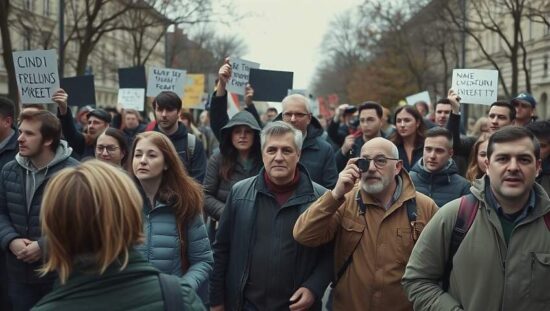The planned overhaul of Germany’s military conscription, dubbed the “New Service Act” is facing robust legal challenges and mounting political criticism, raising serious questions about the government’s transparency and the underlying logic of the reform. Michael Schulze von Glaßer, Executive Director of the German Peace Society – United Conscientious Objectors (DFGVK), has announced the organization will launch a full-scale legal assault against the legislation, deeming it “juristically on extremely shaky ground.
Von Glaßer accused the governing coalition of a relentless pursuit to bolster troop numbers at all costs. The DFGVK intends to have the law rigorously assessed by legal experts and will actively challenge its validity through the courts. Demonstrating their opposition, the organization plans a symbolic protest outside the Bundestag on Thursday, intending to shred a copy of the bill using a garden shredder. Von Glaßer asserted that the reform would only exacerbate an “arms race” and fail to enhance security.
A particularly contentious element of the legislation is the proposed lottery system for selecting individuals to be summoned for military evaluation following a mandatory questionnaire. Von Glaßer condemned this process as unacceptable, arguing that it reduces the potentially life-altering preparation for potential military service to a matter of arbitrary chance. “Months of one’s life spent training to kill others, instead of pursuing meaningful contributions to their lives and society, must not be a lottery” he stated.
The abrupt nature of significant revisions to the draft law, introduced just days before its first reading in the Bundestag and shortly after its approval by the Federal Cabinet, has been highlighted as indicative of government disorganization.
Bundestag Vice President Bodo Ramelow (Left Party) echoed these concerns, condemning the proposed lottery system as creating a “lottery” out of compulsory military service. He expressed deep alarm, labeling the approach “utterly absurd” and a stark contrast to reliable policy. Ramelow further suggested that the coalition consider establishing a citizens’ assembly to engage in a more comprehensive and democratic consideration of the complex issues surrounding military conscription, noting the historical challenges associated with such obligations. The episode exposes a deep divide emerging within German politics regarding the future of military service and the government’s strategy for national security.





